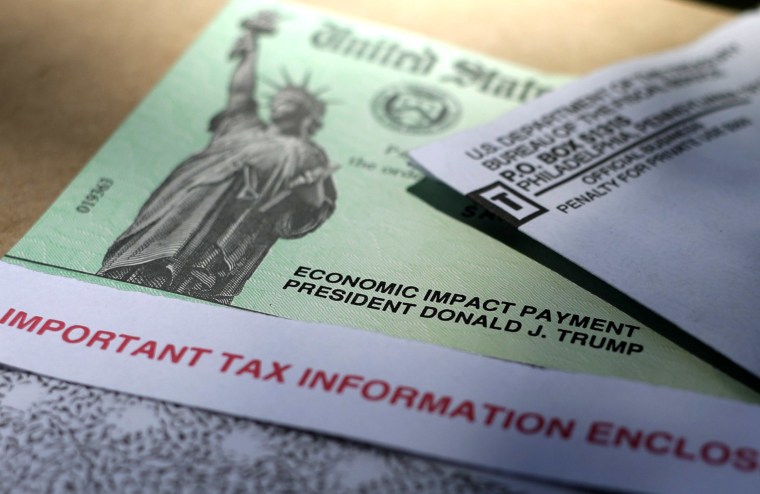A lawsuit filed against President Donald Trump, Treasury Secretary Steven Mnuchin and Senate Majority Leader Mitch McConnell, R-Ky., alleges that a provision in the $2.2 trillion coronavirus relief package unconstitutionally denies stimulus checks to U.S. citizens married to undocumented immigrants.
The CARES Act provides $1,200 payments to those who earn up to $75,000. But both spouses in families filing joint tax returns must have Social Security numbers, unless one is a member of the military, in which case the requirement is waived. The plaintiff in this class action suit, filed Friday, is a citizen who alleges he was denied the stimulus payment because he is married to a noncitizen.
If allowed by the court, the size of the class will be large. According to the complaint, there are more than 1.2 million Americans who are married to immigrants who lack Social Security numbers. Within that group there are most likely many thousands who are similar to the plaintiff.
Undocumented immigrants are generally not eligible for a Social Security number, but lawfully present immigrants who are authorized to work in the U.S. may apply. Many immigrants, including some lawfully present, file taxes with an Individual Taxpayer Identification Number (ITIN) and are excluded from the stimulus payments.
The lawsuit challenges the CARES Act as infringing on the plaintiffs' fundamental right to marry and discrimination based on "alienage" — which is the wife's noncitizen status.
The plaintiff, who is anonymous, citing his Fifth Amendment right against self-incrimination, argues that statutory classifications based on alienage are just as suspect as those based on nationality or race. Discrimination based on any of these classes, the complaint insists, are subject to close judicial scrutiny.
The Supreme Court has said that "classifications based on alienage ... are inherently suspect and subject to close judicial scrutiny." However, not all limitations on aliens are suspect, let alone limitations on illegal aliens. Indeed, the Supreme Court long ago said that "undocumented aliens cannot be treated as a suspect class." Congressional disparate treatment of "aliens" is presumed by courts to be based on national immigration policy rather than "invidious discrimination."
It's likely why the citizen husband is the named plaintiff and not the immigrant wife. She would not have as strong a direct claim against the Trump administration and Congress for discriminating against her based on her "alienage." Instead, the citizen husband has the stronger case, not based so much on his wife’s alienage, but on his fundamental right to marry.
In 2015, the Supreme Court held in Obergefell v. Hodges that the right to marry is a fundamental right, protected by the due process and equal protection clauses of the 14th Amendment.
There's no question that the challenged provision of the CARES act affects the plaintiff based on his marriage to his noncitizen wife. But not every federal law that affects a marriage is unconstitutional.
For example, a citizen spouse does not have a constitutional right to have his alien spouse reside in the United States. Courts have held that such a "right" would run "headlong into Congress' plenary power over immigration." Which means that when the right to marry meets immigration policy, the government is likely to win.
The Trump administration and Congress cannot possibly dispute that the CARES Act treats this family differently than families without an immigrant spouse. The language of the statute excludes these families in so many words.
However, because of Congress and the federal government’s overriding power over immigration, these families may not have any remedy in the courts.
